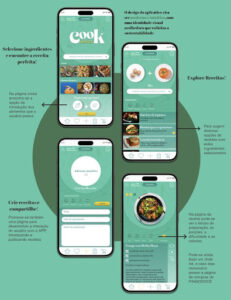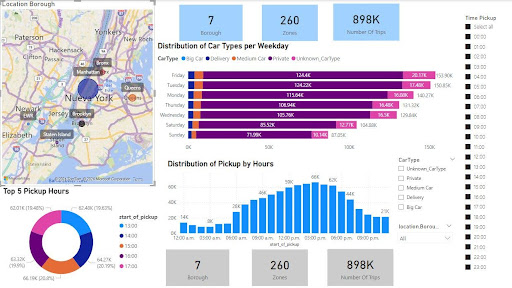Landing your first tech job without experience might feel overwhelming. While job hunting isn’t anyone’s favorite hobby, especially for those with little to no experience, the good news is that there are practical steps you can take to stand out. From reskilling and training to building a portfolio and networking, this blog discusses how you can increase your chances of getting hired in the tech industry.
Tech Is a Great Career Choice
Salaries in tech are a major draw, offering competitive compensation that stands out across industries. In fact, tech workers earn nearly double the average American salary, making it an attractive field for those seeking financial stability and growth. From entry-level positions to specialized roles, tech jobs often come with generous benefits and the potential for rapid salary increases as you gain experience and expertise.
The tech industry is booming and the demand for skilled workers is higher than ever. One of the best things about tech is that it values skills over traditional experience. 76% of employers use some form of skills-based hiring to find new talent, with nearly 55% using role-specific skills tests. Many companies are more interested in what you can do than in where you’ve worked before. Even if you don’t have years of experience or a fancy degree, you can still work in tech by showing what you’re capable of. For example, even self-taught programmers and bootcamp graduates land jobs at big companies if they can prove their abilities to employers.
Another reason tech is a great choice is the wide variety of roles available. Whether you’re into coding, graphic design, data analysis, or even project management, there’s something for everyone. You don’t have to be a hardcore programmer to get started.
Tech is one of the most flexible and innovative industries when it comes to hiring. Many companies offer entry-level programs, internships, or on-the-job training, making it easier to get your foot in the door. Startups, in particular, are often open to hiring people with little experience but lots of potential and a willingness to learn. Plus, remote work has become common in tech, so you can apply for roles globally, expanding your chances of landing a job. This flexibility allows you to start anywhere and grow your career in the direction that excites you the most.
Practical Steps to Get Your First Tech Job
While it’s possible to get into tech, some ways are better than others. We’ve gathered some practical tips to steer you in the right direction and increase your chances of landing your first tech job.
Invest in Training to Develop Tech Skills:
To be hired based on your tech skills, you first need to develop such skills. Find out what tech job roles would be right for you based on your preferences and talent by talking to a tech training career advisor. Then pursue serious, months-long reskilling programs that train you to that specific job role and make you more marketable. Reskilling programs are designed to help people with little or no tech background gain the skills needed for in-demand tech jobs. These programs often offer hands-on training and real-world projects, giving you practical experience. For tech, it’s usually preferable to pursue live training with trainers and guidance than online courses. By completing relevant training and certifications, you can add them to your resume or LinkedIn profile, showing employers that you’ve gained the necessary skills that are valued and recognized by industry standards.
Build Your Portfolio:
A professional portfolio speaks louder than CVs or education in tech. Demonstrating what you’ve done in practice gives employers the most confidence that you have what it takes. Start by creating personal projects, even small ones, that showcase your skills. Whether it’s a website, mobile app, or data analysis project, having something tangible to show employers goes a long way. This is your chance to demonstrate your abilities and that, in fact, you do have experience.Volunteer or Freelance:
If you’re struggling to find a paid job, consider volunteering or offering freelance services while job hunting. Non-profits, startups, or small businesses often need tech help but may not have the budget for it. Offering your skills in exchange for experience and a recommendation for a job well done can help you build your experience and get real-world exposure. You might help a local charity set up a database, launch a website, design a logo, or manage their digital marketing—these experiences count and they demonstrate your initiative and versatility. It’s also good karma to help others.Create Authority Online:
Sharing thoughts and examples on your preferred area of work on social media and a personal website can boost your visibility and credibility in the tech world. Regularly share insights, projects, or industry news on platforms like LinkedIn or Twitter to show your passion, knowledge, wits, and skills. Posting about your learning journey, sharing code snippets, or even writing blog posts on topics you’re interested in can position you as an active participant in the tech community. When invited for an interview, you’d be able to present yourself not only as a skilled worker, but also as a thought leader aware of the latest industry trends.Network, Network, Network:
Networking is key to landing a job in tech. Many times, people who know you will get you connected to a company looking for talent, or hire you themselves based on your interaction. To grow your professional network, attend virtual meetups, webinars, or local events where you can connect with professionals in the industry. Join online communities like LinkedIn, Reddit groups, or Discord servers focused on tech topics that interest you. Don’t be afraid to reach out to people for advice or coffee meetings, even if there isn’t a specific job to discuss. Building relationships with others in the field can open doors and lead to job opportunities you might not find otherwise. As the famous Pitbull song goes: “Ask for money, get advice. Ask for advice, get money twice.”Tailor Your Applications:
When applying for jobs, make sure your resume and cover letter are tailored to each position. Highlight transferable skills from past experiences, even if they’re from unrelated fields. For example, if you’ve managed projects or worked in customer service, emphasize your problem-solving, communication, and time management skills. Pair these with the technical abilities you’ve gained through training and projects, and make it clear how you’re ready to apply them to a tech role.Stay Persistent and Keep Learning:
The tech field is constantly evolving, especially with advancements like Generative AI (Gen-AI) reshaping industries, so even after you’ve built a solid foundation, continue learning and staying up-to-date with the latest trends. Sometimes new tools create an opportunity to become an expert in a field where no one has prior experience. The biggest experts on ChatGPT and Midjourney have only a few years of experience! Explore how new AI tools are being used in various tech roles, and consider incorporating them into your skillset. Follow industry blogs, take part in coding challenges, and keep adding skills to your resume. It might take time to land your first job, but staying persistent and constantly augmenting your skills will eventually pay off. Every project or connection brings you one step closer to your goal.Be Confident:
When it comes to interviews, confidence is key. Prepare by researching the company, practicing common interview questions, and reviewing any projects or skills listed on your resume. Approach the interview with a positive mindset—focus on your strengths, your willingness to learn, and how your problem-solving abilities make you a great fit for the role. If you don’t know the answer to a technical question, be honest, but show how you would go about finding the solution. Interviewers appreciate candidates who are resourceful and eager to grow. More than all, build a personal rapport with the interviewer – make her or him feel that you’d be a great colleague to work with and have on the team.
Wawiwa’s Reskilling Programs
Wawiwa is a global tech education provider, offering reskilling and upskilling programs tailored to the latest industry trends.
Wawiwa reskills people with no prior background to tech professions in high demand, such as Full-Stack Developers, Cybersecurity Analysts, Data Analysts, and UX/UI Designers.
Wawiwa’s reskilling programs last 6-9 months, after which students are job-ready and equipped with the skills needed to enter the tech industry. A key feature of these programs is the Bring It Together (BIT) projects, which take place at the end of the program. During these projects, students apply everything they’ve learned in real-life scenarios, gaining practical experience and creating a demonstrable portfolio of work to share with potential employers.
Examples of BIT Projects

A UX/UI Program student designed an intuitive, user-friendly mobile application.

Another UX/UI Program student created a professional portfolio website, showcasing his unique style.

A Full-Stack Developer Program student built a complete platform for managing Formula 1 races, developing both the frontend app and backend database.

A Data Analyst Program student created detailed and insightful visualizations to explain trends in Car Pickup services (e.g. Uber).
By the end of the program, students have gained essential tech skills and also have the confidence and experience to step into a tech role, even if they’re starting with no prior background.
Wawiwa’s programs also emphasize essential soft skills, such as communication, teamwork, and problem-solving, which are highly valued in the tech industry. Additionally, students participate in HR workshops designed to help them in the job search process, including resume building, interview techniques, and networking strategies.
Many companies visit Wawiwa’s partnering tech training centers and universities to meet and recruit talent directly on campus. These visits give students the opportunity to network with potential employers, showcase their skills, and even secure job offers before graduating. It’s a great chance for students to get noticed and start their careers in tech right away.



